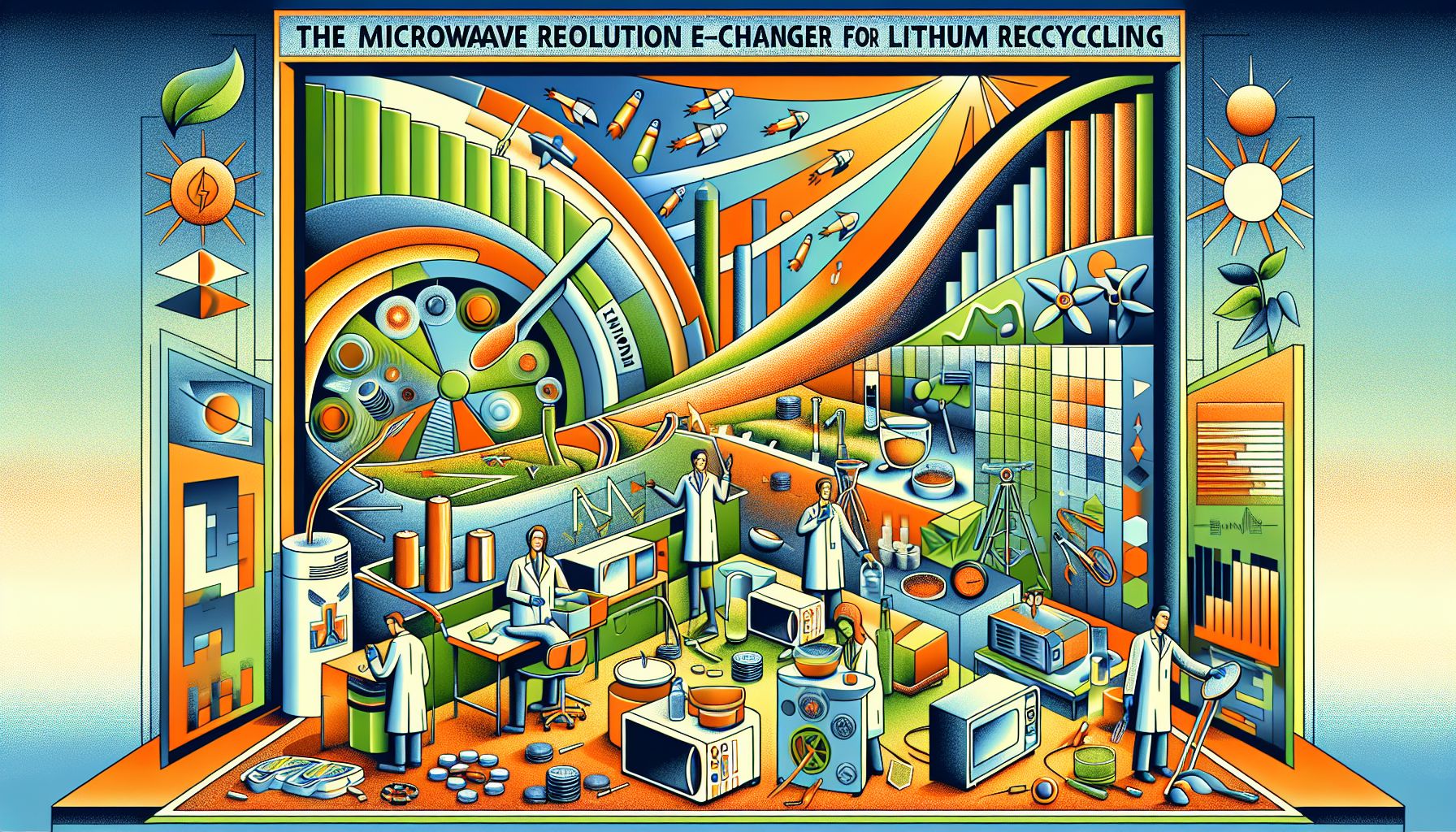Microwave Revolution: A Game-Changer for Lithium Recycling

Amsterdam, Tuesday, 30 July 2024.
Researchers have developed a groundbreaking method using microwaves and a special liquid to extract lithium from batteries in mere seconds. This innovative approach promises to transform the battery industry by making lithium recycling faster, more cost-effective, and environmentally friendly.
A Breakthrough in Battery Recycling
The new method, spearheaded by researchers at Rice University, utilizes a unique liquid, choline chloride, which absorbs microwaves. When battery waste is immersed in this mixture, the microwaves rapidly heat the components, extracting lithium efficiently. This process is remarkably similar to how a kitchen microwave heats food, transferring energy directly to the molecules to expedite the reaction.
Efficiency and Speed
In tests, this method has achieved remarkable results. Researchers have managed to extract up to 50% of lithium from used lithium-ion cathodes in just 30 seconds. Even more impressively, when extracting lithium from unused sources, the process can recover 87% of the lithium in just 15 minutes. This is a significant improvement over traditional methods, which can take up to 12 hours to achieve similar results using heated oil baths.
Environmental and Economic Benefits
This breakthrough is not just a technical marvel; it also promises substantial environmental benefits. The faster extraction process requires significantly less energy, making it a more environmentally friendly option. Moreover, the potential to recycle lithium more efficiently could make battery recycling more attractive economically, reducing the need for new lithium mining and thereby lowering the environmental impact.
Industry Implications
The implications for the battery industry are profound. Faster and cheaper lithium recycling could accelerate the adoption of electric vehicles (EVs) by reducing the cost of batteries. This, in turn, could help mitigate climate change by promoting cleaner transportation options. Additionally, the method’s efficiency could lead to more sustainable practices within the industry, aligning with global sustainability goals.
Future Prospects
While this method is still in the research phase, its potential is undeniable. Companies and researchers are likely to explore further applications and optimizations, possibly leading to widespread adoption in commercial recycling facilities. As the global demand for lithium-ion batteries continues to rise, innovations like these are crucial in ensuring a sustainable future.

